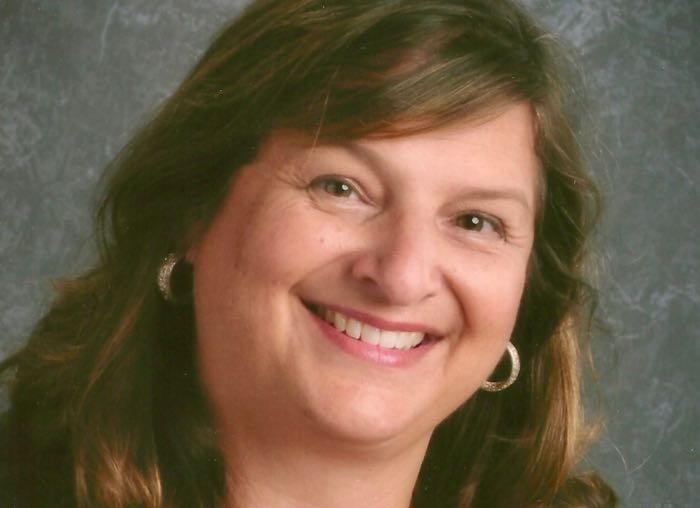What Do School Boards Do in the Summer?

Summers are Busy, but Different
There seems to be a funny, inaccurate notion that educators get the summer off.
Three full months of nothing but rest and relaxation, right? The truth is, nothing could be further from accurate. Many teachers take on extra work over the summer. They have to. They only get paid for the days that they work. If they do not teach during the summer, they do not get paid during the summer (Ed100.org has more information on teacher pay).
Summers can be even busier than the regular school year.
School district administrators work a 12-month year and summers can be even busier for them than the regular school year. Since school board members work closely with district administration, their work does not end during the summer, either.
The District Office in Summer
Summers are a busy time at district offices. Kids enroll in schools all summer long. Enrollment typically takes place at the district office, since school sites are closed during the summer break. Often, summer school is going on. Trainings are taking place. Preparation is underway for staff development and back-to-school retreats and meetings. Policies get reviewed. Hiring is ongoing, etc., etc., etc.. The list is plentiful. The point here is that there is work to do during the summer over the short time that kids are not in the classrooms.
For school board members, the work continues during the summer months. To be clear, we can no longer define summer break as the time from Memorial Day to Labor Day. In fact, summers for schools are not quite so extensive. Calendars vary from district to district, and the number of required school days is determined by Ed Code, but recent changes to education in California — namely the addition of the LCAP (Local Control and Accountability Plan) — has basically extended the school year for administrators and board members well into June.
Developing the budget used to be the job of the Business Office, alone. Now, with the addition of the LCAP, if districts are doing it right, the Business Office is working in partnership with the Educational Services department to align LCAP priorities with the budget. There are additional meetings involved to coordinate that work and have the information ready to present to the public and to the Board. With most schools beginning the school year in August, the summer break really only consists of a few weeks in July.
The Last Board Meeting in June
Do the priorities in the budget match the priorities in the LCAP?
The LCAP is approved at the same time as the district's budget, but no later than July 1. For many districts, this takes place at the last meeting in June. In addition to reviewing and understanding the district’s budget, responsible Board Members will read and understand the district’s LCAP prior to approving it. A really in-touch board member will make sure that the priorities identified in the LCAP are matched with funding in the budget. No one is expected to be an expert, but board members can get help understanding the budget and the LCAP and how they are related by becoming familiar with both documents and asking questions of staff.
If you have not seen a district budget or an LCAP, buckle up! They are cumbersome. They have to be. Reading them takes time and devotion to a purpose. Serving on a school board is a job; in some districts it is a paid one. But in most districts, board members do this kind of work on their own time. Budgets and LCAPs should be posted on district websites.
Summer is also a good time for board members to sharpen their skills. As with any profession, ongoing education is crucial for board members to grow in their role and to stay abreast of what is expected. The California School Boards Association offers classes during the summer to help board members with their work. Whether it is Leadership Training, Governance Basics, or Board President training, summer is a good time to attend training.
Workshops for School Boards
Also on Ed100: How can PTA boards use summer to plan ahead for a great year of meetings?
Many school districts use summers to conduct board workshops. These workshops take place in open session, meaning that they are open to the public. Often the workshop will be the only item on the agenda so that the deliberations and discussions about the topic can be thorough. These workshops can be used for an abundance of topics ranging from facilities discussions, to discussions about whether to move forward with a bond or parcel tax, to Board discussions on meeting norms. Recently many boards have been studying the coming impact of changes in the pension system. Whatever the topic, summer is a good time to get the board together to work on items that they may not have time to address during the crowded agendas of the regular school year.
So, the long and the short of it is that summer is not really break time for Board Members, but a season of the school year that allows time for a different type of work.
Take a look at your school district’s LCAP. (If you can't find it on your school district's website, check LCAPWatch.org.) At the very least, read the Executive Summary. If you like what you see, go to the board meeting in June where the plan is up for approval and let the board members know. Community input is crucial. If you do not like what you see, share your feedback with the board and find out how to join the committee to develop next year’s plan. They will probably begin meeting in the fall.
 Denise Jennison helps Ed100 readers understand California's school system with particular focus on school boards. A member of the school board in the San Ramon Valley Unified School District since 2010, Denise has served as both the president and treasurer of the Contra Costa County School Boards Association. She served on the California State PTA Board of Managers for four years. A credentialed teacher and the daughter of two public school educators, Denise attended California public schools from elementary school through the University of California. All four of Denise’s sons graduated from schools in San Ramon Valley Unified School District. Denise lives in Danville with her husband, dogs and occasional returning sons.
Denise Jennison helps Ed100 readers understand California's school system with particular focus on school boards. A member of the school board in the San Ramon Valley Unified School District since 2010, Denise has served as both the president and treasurer of the Contra Costa County School Boards Association. She served on the California State PTA Board of Managers for four years. A credentialed teacher and the daughter of two public school educators, Denise attended California public schools from elementary school through the University of California. All four of Denise’s sons graduated from schools in San Ramon Valley Unified School District. Denise lives in Danville with her husband, dogs and occasional returning sons.Read more from Denise in Ed100's School Board Primers.
Tags on this post
LCAP School board SummerAll Tags
A-G requirements Absences Accountability Accreditation Achievement gap Administrators After school Algebra API Arts Assessment At-risk students Attendance Beacon links Bilingual education Bonds Brain Brown Act Budgets Bullying Burbank Business Career Carol Dweck Categorical funds Catholic schools Certification CHAMP Change Character Education Chart Charter schools Civics Class size CMOs Collective bargaining College Common core Community schools Contest Continuous Improvement Cost of education Counselors Creativity Crossword CSBA CTA Dashboard Data Dialogue District boundaries Districts Diversity Drawing DREAM Act Dyslexia EACH Early childhood Economic growth EdPrezi EdSource EdTech Education foundations Effort Election English learners Equity ESSA Ethnic studies Ethnic studies Evaluation rubric Expanded Learning Facilities Fake News Federal Federal policy Funding Gifted Graduation rates Grit Health Help Wanted History Home schools Homeless students Homework Hours of opportunity Humanities Independence Day Indignation Infrastructure Initiatives International Jargon Khan Academy Kindergarten LCAP LCFF Leaderboard Leadership Learning Litigation Lobbyists Local control Local funding Local governance Lottery Magnet schools Map Math Media Mental Health Mindfulness Mindset Myth Myths NAEP National comparisons NCLB Nutrition Pandemic Parcel taxes Parent Engagement Parent Leader Guide Parents peanut butter Pedagogy Pensions personalized Philanthropy PISA Planning Policy Politics population Poverty Preschool Prezi Private schools Prize Project-based learning Prop 13 Prop 98 Property taxes PTA Purpose of education puzzle Quality Race Rating Schools Reading Recruiting teachers Reform Religious education Religious schools Research Retaining teachers Rigor School board School choice School Climate School Closures Science Serrano vs Priest Sex Ed Site Map Sleep Social-emotional learning Song Special ed Spending SPSA Standards Strike STRS Student motivation Student voice Success Suicide Summer Superintendent Suspensions Talent Teacher pay Teacher shortage Teachers Technology Technology in education Template Test scores Tests Time in school Time on task Trump Undocumented Unions Universal education Vaccination Values Vaping Video Volunteering Volunteers Vote Vouchers Winners Year in ReviewSharing is caring!
Password Reset
Search all lesson and blog content here.
Login with Email
We will send your Login Link to your email
address. Click on the link and you will be
logged into Ed100. No more passwords to
remember!














Questions & Comments
To comment or reply, please sign in .